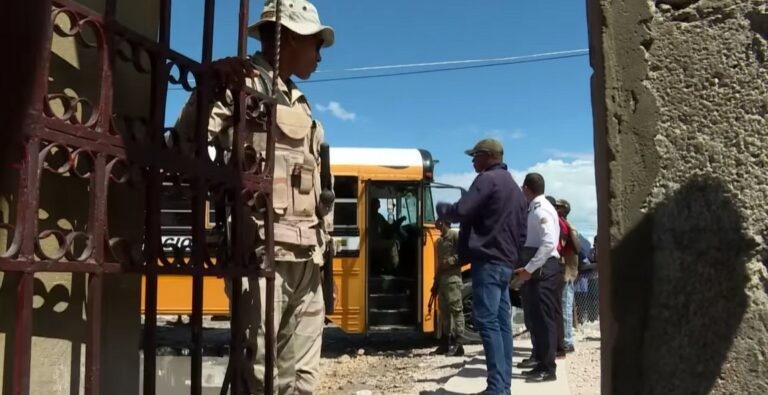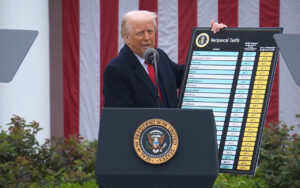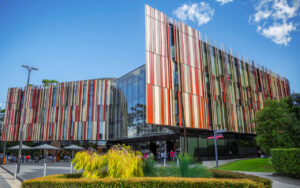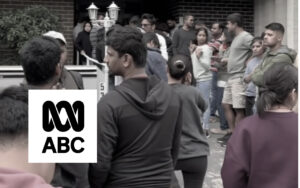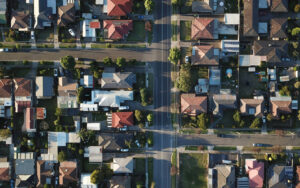Birthright citizenship is repealed. Special agents round up illegal immigrants at construction and agricultural work sites to be instantly sent home. A concrete wall is constructed and garrisoned with soldiers surveilling the border with drones and radars.
These are not the empty promises of Donald Trump, Giorgia Meloni or the British Tories, they are the reality of Luis Abinader’s Dominican Republic.
The bloody history of Haiti and the Dominican Republic has created a unique racial and ethnic dynamic on Hispaniola that continues to influence the latter’s politics.
Following the success of the Haitian revolution, Jean-Jacques Dessalines decreed in 1804 that all White people on the island were to be killed on sight. Following the success of this gruesome act of genocide, Haitian forces sought to export their revolution by invading the Spanish side of the island, which had a much smaller, sparse population, though they encountered resistance in this crusade due to the high percentage of mixed race and White people living there. Dominicans racially classified as White, which included some light-skinned African-mixed people, were stripped of their citizenship and land by the Haitian constitution and forced out of their cattle ranching trade to work for blacks in slavery conditions in the cash crop industry.
A group of multiracial and White Dominican nationalists called the Trinitarios, led by Spanish descendant Juan Pablo Duarte, led a rebellion against Haitian dictator Charles Rivière-Hérard and expelled his forces from the eastern portion of the island in 1844, establishing the divide that exists today. Though the occupying army was numerically superior to the Dominicans, Rivière-Hérard was himself undermined from within by an uprising of Haitian blacks enraged by the fact that their leader himself had some European ancestry.
Today, the trauma of Haitian rule continues to inform Dominican identity. This national sentiment helped Abinader, of Spanish and Lebanese ancestry, successfully win the 2020 election on a platform of ending Haitian migration and cutting through red tape to deport those already in the country. It was estimated at the time of Abinader’s victory that Haitians, most of them in the country illegally, numbered somewhere between 750,000 and 1 million out of the Dominican Republic’s 11 million population.
Soon after taking office, Abinader began preparations to keep his promise. His Modern Revolutionary Party, with consensus support including from opposition groups, passed a law in 2022 to form a new immigration enforcement police unit that would specialize in targeting job sites known to hire Haitian illegals for unannounced mass round ups. In 2013, a constitutional reassessment removed birthright citizenship from all those born to foreign parents since 1929, which granted the Dominican government the powers needed to detain and remove 170,000 Haitians from the country by the end of 2022.
The next year, what the US State Department has condemned as “mass deportations” reached unprecedented levels. That year, 250,000 Haitians living within Dominican territory were identified by immigration authorities and expelled, while an additional 200,000 voluntarily repatriated. A substantial portion of these Haitians had their citizenship retroactively revoked under the 2013 constitutional amendment, which means they are not recognised as either Dominican or Haitian citizens, but this did not stop Abinader from sending them back at a rate of 50,000 immigrants per month. In one instance during this crackdown, 20,000 Haitians were deported in a time span of nine days. The small and relatively poor Dominican Republic now has one of the most active and prolific immigration enforcement systems on the planet.
From January to April in 2024, the rate of deportations fell to a total of 30,000 in four months, but this reduced level of enforcement is more of a testament to the government’s effectiveness in removing Haitian migrants in previous years rather than any dampening of their burning enthusiasm. Last May, the Abinader government completed a 250-mile concrete wall, modelled after Israel’s barrier to Syria in the Golan Heights (which, in the Israeli case, the United States supports), permanently preventing Haitians from illegally crossing into the country. The Dominican government has adamantly refused to host any Haitian refugees in its territory and has rejected demands from the UN that it grant citizenship or residency permits to multi-generational migrants regardless of how long they have resided in the country.
Within the Dominican landscape, Abinader’s policies are uncontroversial. He was recently re-elected in a landslide and all of the major parties support his anti-migrant efforts. The opposition to these policies is restricted largely to outsiders: Washington, the United Nations, and various foreign funded non-governmental organisations who have sought to undermine the effort.
Much like in America and Western Europe, business interests in the tourism, construction and agricultural sectors warned from the onset that preventing them from hiring Haitian immigrant labor would cause the economy to go into recession and inflation to skyrocket. These predictions were proven false. Three years into the mass expulsion program, the Dominican economy is thriving while inflation has been tamed.
For over a decade, the US government and its “civil society” allies have attempted to browbeat the Dominicans out of enforcing its immigration laws and protecting its border. A 2015 Atlantic article demonising the country by Jonathan Katz helped trigger this moral panic from the start, when deportations were comparatively much lower. A deluge of negative press coverage and accusations of “racism” and “Anti-Haitianism” from the likes of the New York Times, Washington Post, and so on — along with official complaints condemning the Dominican Republic by the US State Department — have flooded the conversation uninterrupted for the past decade. In 2023, the Jewish-controlled Associated Press published a pack of largely anonymous accusations intended to demonise Dominican immigration enforcement authorities as rapists.
On the street level, a local asset of the American Jewish World Service purporting to represent Dominicans of Haitian descent, Reconoci.do, has sought to import American-style anti-white racism to the country, albeit with little success. A 2020 march in Santo Domingo organised by Reconoci.do dedicated to George Floyd was physically stopped in its tracks by the Antigua Orden Dominicano (Old Dominican Order), a Dominican nationalist shirt movement modelled after 1930s European fascist groups. AOD has grown in numbers and popularity by engaging in street battles against Reconoci.do and other foreign sponsored activist groups, making it difficult for the radical left to organise or establish a political foothold in the country. The Abinader government has faced repeated demands to proscribe AOD as a hate group, but has so far ignored these requests.
The Dominican Republic, once a colony of the United States, has in recent years become highly assertive in the face of Washington harassment. Much like in the case of El Salvador’s Nayib Bukele, these figures of the so-called global south have enjoyed greater space to govern according to their own needs and values thanks to declining American imperial influence.
Though the Dominicans are closely aligned with the United States, they have gained the upper hand in relations due to the spectre of China and Russia gaining another ally near American soil.
The Dominican government’s previous leader, Danilo Medina, began a campaign to pull away from the United States, such as a 2018 move to end the country’s recognition of Taiwan and declaring it Chinese territory in exchange for Beijing’s investment and infrastructure projects. This drift towards China provoked a rare visit from Secretary of State Mike Pompeo, only the third visit from such a post since 1961, who lectured the Dominicans on the importance of democracy and offered desperate concessions in order to get them to stay Washington’s geopolitical course.
Abinader has been friendlier to the US than his predecessor, citing the nation’s immense transactional economic privileges granted to them under the Dominican Republic-Central America Free Trade Agreement. Abinader has temporarily paused some Chinese projects in the country that were the subject of Washington’s anger, but has not cancelled them, leading some to believe he is leveraging his country’s strategic position to work the relationship on the Dominican Republic’s terms.
In September 2022, the Dominican government declared that it would retain good relations with Russia, a major source of tourism to the country, during “good and bad times,” a reference to the G7’s attempt at ostracizing the nation over the Ukraine war. Dominican officials even offered to organize special flights to their country to help Russian citizens circumvent bans from entering countries that traditionally serve as layovers. Vladimir Putin appears to be paying special attention to US-Dominican relations in hopes of capitalizing on tensions, as seen in his offers to drastically expand ties with the Caribbean nation in recent years, including aiding their oil exploration program, which American oil companies currently control.
A month after the meeting between the Russian and Dominican diplomats, the US embassy published a loaded “alert” addressed to “dark-skinned” Americans, instructing them to avoid visiting the Dominican Republic due to fears that they would be confused for Haitians and arbitrarily detained on immigration grounds. No example of such an incident having ever occurred to justify such fearmongering was provided.
The Dominican government responded to this attack on their tourism industry by summoning the US ambassador and demanding a retraction. The strategic importance of the Dominican Republic to US interests was revealed when Undersecretary of State Wendy Sherman personally visited the country and humbly acquiesced to the Dominican demand that she record a video promoting their tourism industry to Americans as an act of contrition.
Both Bukele’s El Salvador and Abinader’s Dominican Republic enjoy massive transactional benefits from their relationship with the United States — retaining good will with America makes intuitive sense for them —but by showing they have other options, they have succeeded in implementing their domestic agendas in spite of attempts at meddling from their supposed ally.
The Dominican war on immigration is unapologetically motivated by a desire to protect the interests of their ethnic majority, who do not want the anarchy of Haiti to spill over into their relatively functional country. If the Dominican Republic can end illegal immigration and deport 5% of the population in a span of three years, then so can advanced Western nations.
This article originally appeared on Littoria and is republished by The Noticer with permission.
